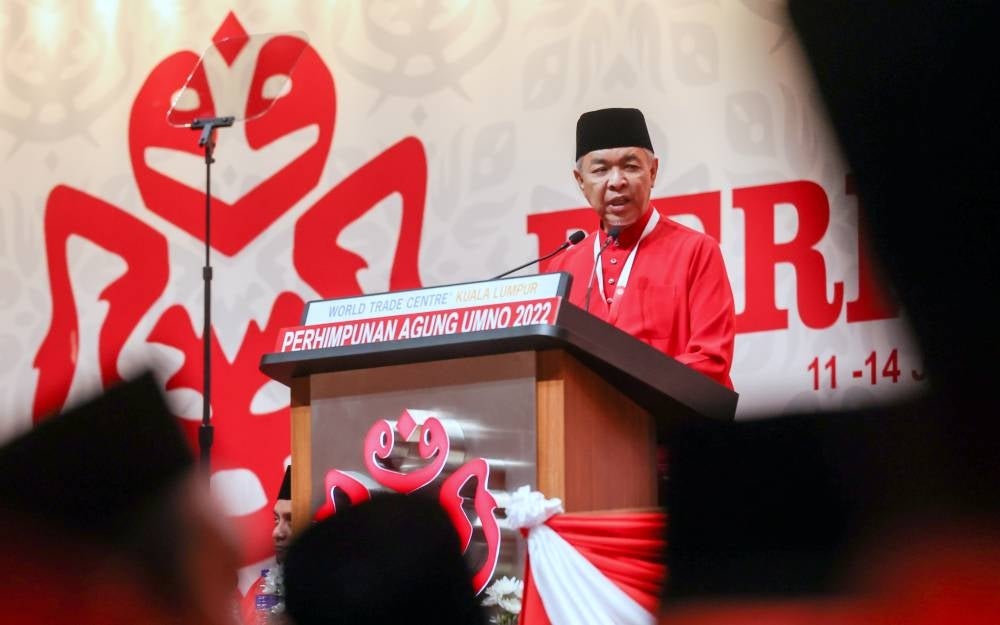Sabah, Sarawak now known as regions, no longer states - Zahid

KUALA LUMPUR - Sabah and Sarawak have been accorded the status of region and are no longer regarded as states within Malaysia, said Deputy Prime Minister Datuk Seri Ahmad Zahid Hamidi.
Ahmad Zahid, who is also the Minister of Rural and Regional Development, said the relocation of the Indonesian capital to East Kalimantan made the Sabah and Sarawak regions more strategic, to be developed as new growth areas.
"The Unity Government today has a considerable legal and moral obligation towards Sabah and Sarawak,” he said.
Ahmad Zahid, who is also the president of Umno, said this in his policy speech at the 2022 Umno General Assembly, at the Kuala Lumpur World Trade Centre here, today, which was attended by 2,820 delegates.
Accordingly, the Barisan Nasional (BN) chairman said that the Malaysia Agreement 1963 (MA63) needs to be implemented immediately.
"Even though there are some basic things which have been already implemented, there are still several things which form the basis of MA63 that need to be translated for implementation," he said.
Ahmad Zahid said that the overflow of development in Kalimantan needs to be worked on immediately, so that Sabah and Sarawak will develop more rapidly.
"Since 1963, Sabah and Sarawak have contributed a lot to the country's economic development, and now is the best time for us to develop both Sabah and Sarawak, in line with the development in the entire Borneo archipelago, including Kalimantan, Indonesia," he said.
On Jan 4, Prime Minister, Datuk Seri Anwar Ibrahim, said that today's leaders need to be persistent in defending Malaysia's spirit in MA63 while doing their level best to honour the agreement which reflects the wisdom of the previous leadership.
Anwar also announced that the amount of allocation for special grants to Sabah and Sarawak, according to Article 112D of the Federal Constitution, should be reviewed every five years so that the amount is more reasonable.
He also agreed that the implementation of any project with a cost of less than RM50 million, in Sabah and Sarawak, should be decided almost entirely by the state governments, subject to compliance with financial regulations. - BERNAMA











